
Учебники школьные / анг яз уч ответы
.PDF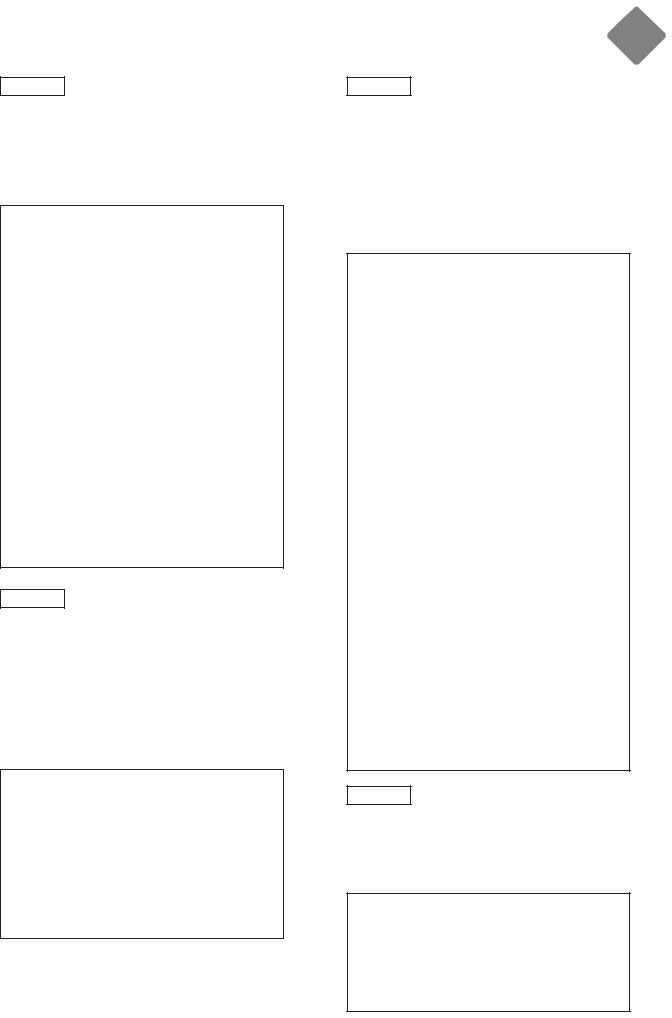
4Focus Role playing discussing a TV show
ñIn pairs, Ss role play the scenario from the rubric.
ñEncourage Ss to use the vocabulary and information they have learned from the text.
ñMonitor the activity and assist as necessary.
Suggested Answer Key
A:What exactly is ‘The Gadget Show’?
B:It’s a programme which presents all the latest technology and gadgets. It shows you how they work, how much they cost and whether they are worth buying.
A:That sounds interesting. How often is it on?
B:It airs every week at this time.
A:Who are the presenters?
B:There are three presenters. There’s Jon
Bentley, Jason Bradbury and Suzi Perry, the girl who’s talking now.
A:So the main idea behind the show is to give viewers up-to-date information on new technology?
B:Well, yes, but it also features challenges and tests to see which gadget is best. Oh, and there’s a competition, too, where one lucky viewer wins all that week’s gadgets from the show.
5Focus Presenting your favourite TV
programme
ñRead the rubric aloud and check Ss understand the task.
ñDirect Ss to answer the questions in the rubric and prepare their presentations.
ñInvite Ss to present their favourite TV programme to the class and ask for feedback from the class.
Suggested Answer Key
My favourite programme is a Canadian Show called ‘My Parents’ House’. It airs every week night. It is presented by Andrika Lawren and Emmanuel Belliveau and it features grown-up children decorating their parents’ houses. I like it because it is interesting to see what the rooms look like before and after they decorate them and how the parents react.
Culture Corner |
4 |
|
|
6Focus Writing an article about a TV
programme
ñDirect Ss to use their answers from Ex. write an article similar to the one in Ex. 1
ñEncourage Ss to use the vocabulary they learned in the unit.
ñAllow Ss time to write their Alternatively, assign the task as HW.
ñInvite Ss to read their articles in class.
Suggested Answer Key
‘My Parents’ House’ is a television programme with a twist. It features people’s houses decorated but, not by neighbours or
like other shows. This decorating features children decorating their parents’ houses.
The programme airs weeknights on HGTV Canada. The Show has been running since when it was first aired. Since then, due to shows popularity it is now available in the USA and Europe.
The presenters of the show are talented designers Andrika Lawren and Emmanuel Belliveau. They assist the members of family in deciding what and how to decorate an out-dated room in the parent’s house. witty presenters have great attitudes make the show a lot of fun to watch. In episode viewers are filled with worry as presenters and participants rush to finish selected room within the 48 hour time period
The end of the show can get quite emotional Parents react to room transformations teary-eyed appreciation for their children the presenters. What’s more the show great design tips and is a must see for would-be interior designers.
7Focus Discussing a TV programme
ñAllow Ss access to the Internet to watch programme on the show’s website.
ñInvite Ss to share their opinions of programme and discuss.
Suggested Answer Key
I think ‘The Gadget Show’ is great. I can it online and find out about all the gadgets available. It is good because I can out if a gadget really works and if it is as as it looks.
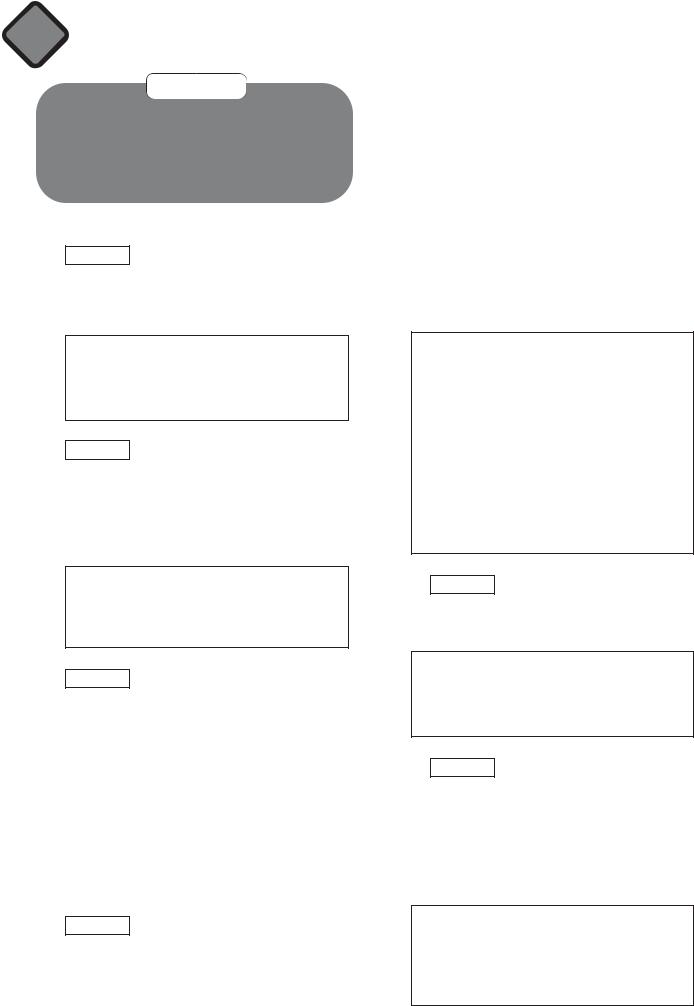
4 Going Green
Objectives
reading to identify missing lexis (multiplecloze); reading for gist
listening for specific information discussing the topic of a text
making notes on a text
&Listening
Introducing the topic of a text
ñRefer Ss to the graph and read it in class.
ñElicit answers to the questions in the rubric and discuss.
Suggested Answer Key
I own a desktop computer. I recently bought a new printer and I took the old one to the recycling bin.
2Focus Predicting the content of a text/
Reading for confirmation
ñElicit answers to the questions and write them on the board.
ñHave Ss read the text with the gaps and check their answers.
Suggested Answer Key
E-waste is electronic rubbish like old computers. E-waste can damage the environment if it is not dealt with properly.
3Focus Reading to identify missing lexis
(multiple choice cloze)
ñDirect Ss to read the text again paying careful attention to the words before and after each gap then choose the best answer.
ñSs should then reread the text to ensure it makes sense.
ñRead the text in class and check.
Answer Key |
|
|
|
|
|
|
|
||
1 |
D |
3 |
A |
5 |
C |
7 |
B |
9 |
B |
2 |
B |
4 |
B |
6 |
D |
8 |
A |
10 |
D |
|
|
|
|
|
|
|
|
|
|
4Focus Reading for gist
|
ñ Have Ss read the headings and then skim the |
|
text searching for key words related to the |
|
headings. |
84 |
ñ Ss complete the task. |
|
ñCheck Ss’ answers in class and ask Ss to justify them from the text.
|
Answer Key |
|
|||
|
A |
1 |
B 3 |
C 4 |
|
|
|
|
|
||
|
|
|
|
Understanding new vocabulary |
|
5 a) |
Focus |
||||
ñRefer Ss to the words in bold and explain that they should use the context of the text to understand their meanings and match them with their synonyms in the rubric.
ñElicit answers in class and check.
Answer Key pace ― speed
outdated ― old-fashioned
what’s the big deal ― why is this important toxic ― poisonous
currently ― at the moment gradually ― little by little harm ― damage
dumped ― thrown away treaties ― agreements donate ― give for free components ― parts
b)Focus Practising vocabulary
ñHave Ss complete the task.
ñElicit answers in class and check.
Answer Key |
|
|
|
1 |
outdated |
4 |
gradually |
2 |
toxic |
5 |
dumped |
3pace
c)Focus Reading and listening for specific
information
ñPlay the recording.
ñHave Ss listen to and read the text for four interesting facts.
ñInvite Ss to tell the class their facts and check Ss understand the text.
Suggested Answer Key
I have learnt that a lot of e-waste currently sits in landfills where chemicals leak into the soil and cause damage which affects the food chain.
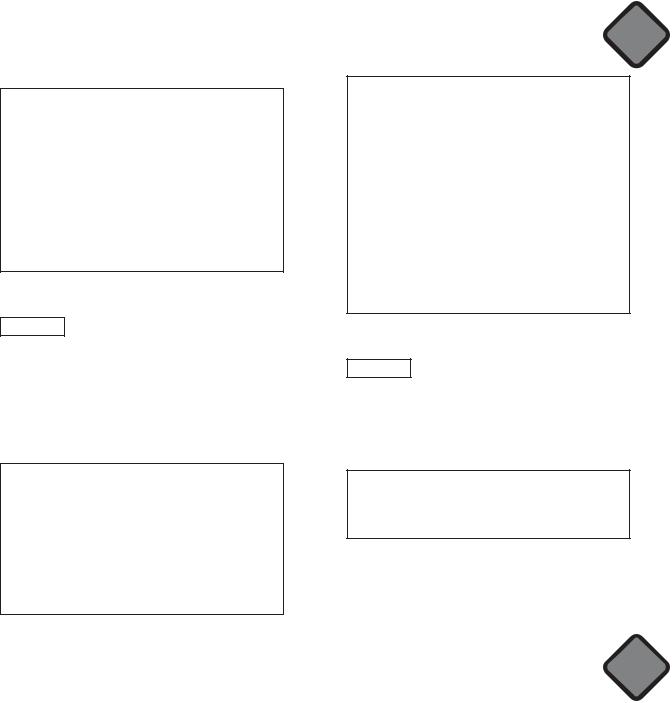
I have also learnt that throwing away electrical items can be very dangerous for the environment, that’s why it is important to recycle and repair them or better still give them to charity.
I have learnt that e-waste pollutes the soil and air with toxic chemicals.
From the text I learned that to stop e-waste we all must remember the 3 Rs ― reduce, reuse and recycle.
Speaking
6Focus Making notes on a text/Discussing
the topic of a text
ñRefer Ss to the headings in the rubric and have them write notes about the text under the headings.
ñInvite Ss to tell the class about the topic of the text, using their notes as a guide.
Suggested Answer Key Why is e-waste a problem?
pollutes the environment, can release poisonous fumes and chemicals
What can we do about the problem?
recycle more, donate old devices to people who can use them
Going Green 4
Suggested Answer Key
E-waste is electric and electronic products that we throw away. For example computers, printers and televisions which end up in landfills. E-waste is very bad for the environment. The chemicals that they produce mean that they are very difficult to dispose of safely. That’s why it is important to reduce, reuse and recycle any electrical equipment which is no longer wanted. I am definitely going to think twice about
e-waste out in the future and I will make all my family and friends do the same.
Words of Wisdom
7Focus Discussing a quotation
ñHave Ss discuss the quotation and means.
ñInvite Ss to tell the class what they quote means and discuss.
Suggested Answer Key
I think the saying means that waste everyone in a negative way.
Progress Check 4
Progress Check 4 and Look at Module 5 should be done in one lesson.
Answer Key |
|
|
|
|
|
|
|
|
|
|
|
|
|
||
1 |
1 |
perform |
6 |
subscription |
3 |
1 |
up |
|
3 |
into |
|
5 |
down |
||
|
2 |
email account |
7 |
server |
|
2 |
out |
|
4 |
out of |
|
|
|
|
|
|
3 |
broadband |
8 |
build |
|
|
|
|
|
|
|
|
|
|
|
|
4 |
overcome |
9 |
phone line |
4 |
1 |
in |
2 |
for |
3 |
on |
4 |
in |
5 |
from |
|
5 |
exist |
10 |
become |
|
|
|
|
|
|
|
|
|
|
|
2 |
1 |
will have started |
6 |
will go |
5 |
1 |
b |
2 |
e |
3 |
a |
4 |
c |
5 |
d |
|
2 |
will be studying |
7 |
will have been writing |
|
|
|
|
|
|
|
|
|
|
|
|
3 |
will have drunk |
8 |
will call |
|
|
|
|
|
|
|
|
|
|
|
|
4 |
will you tell |
9 |
will come |
|
|
|
|
|
|
|
|
|
|
|
|
5 |
will have been |
10 |
will be traveling |
|
|
|
|
|
|
|
|
|
|
|
|
|
playing |
|
|
|
|
|
|
|
|
|
|
|
|
|
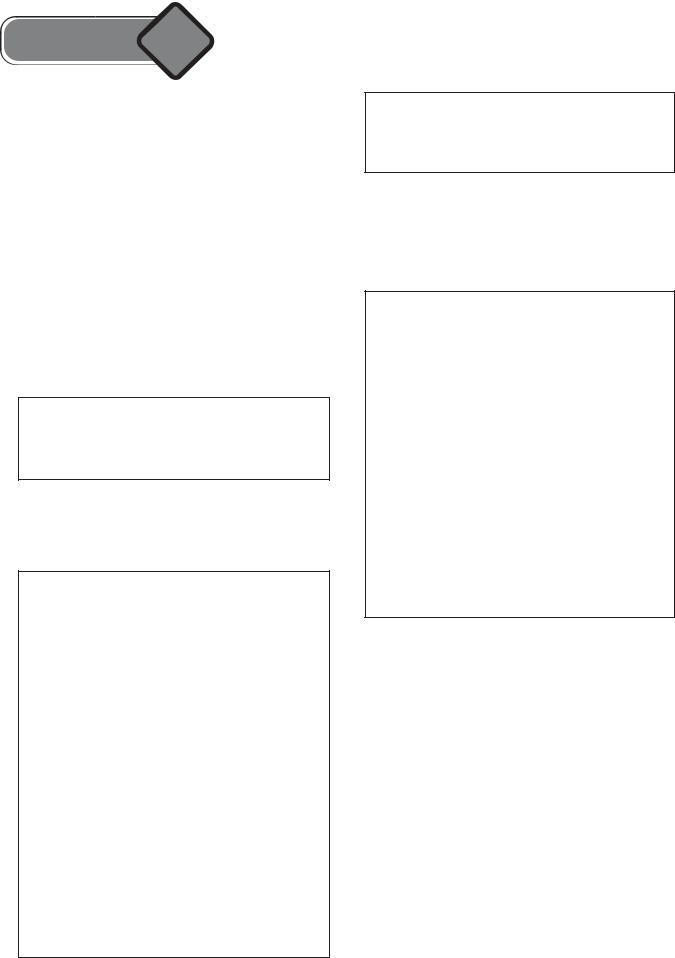
Module 5
Before you start …
ñWork through the questions with the class, asking follow up questions to encourage Ss to expand on their answers as much as possible. (e.g. How does this gadget make your life better? What other gadgets or high technology would you like to have? Why? Do you think we rely too much on technology? Why (not)? What is one task you wish a robot could do? Would you like to have a robot? Why (not)?)
ñMake sure Ss understand this section and use the prompts to recycle vocabulary seen in Module 4.
Look at Module 5
ñRefer Ss to the title of the module, Art & Literature, and invite them to suggest what they think it means and what they expect to learn from the module.
Suggested Answer Key
The title refers to paintings, sculpture and the written word. I think we will learn about different types of art and how they affect us.
ñAsk Ss to look through the module and find the page numbers for each of the pictures. Ask questions to stimulate a discussion about them.
Suggested Answer Key
Focus Ss’ attention on pic 1 (p. 73).
T: What page is the picture on? S1: It’s on page 76.
T: What does it show?
S2: It shows an outdoor concert with a band on a stage.
T: Do you like to go to concerts?
S3: Yes very much, especially when they are outside.
T: What kind of music do you like? S4: I really like rock music.
Pic 2 (p. 74)
What is this a picture of? Where would you probably see such a sculpture? Do you like to look at art? What kind of art do you like?
Pic 3 (p. 87)
What does the picture show? Have you ever heard of this play? Have you ever gone to see a play? Did you like it? Why/Why not?
Pic 4 (p. 80)
What is happening in this picture? Where do you think the best films come from? Do you watch films from other countries? What do you like about them?
Find the page number(s) for
Allow Ss time to browse through the module and find the items. Ask them to explain what each item is and elicit simple information about each of them.
Suggested Answer Key
an extract from a play (pp. 86, 87)
What is a play? (a piece of writing that is performed in a theatre or on film) Do you know who wrote this play? (William Shakespeare) Have you heard or seen any other of his plays?
a quiz (p. 78)
What is a quiz? (a test of knowledge about a subject) What is this quiz testing? How well do you think you would do on this quiz? What can we learn from a quiz?
a spidergram about types of art (p. 74)
What is a spidergram? (a diagram with lines and circles for organising information so that it is easier to use or remember) What is this spidergram about? Do you think it helps you understand the subject better?
Explain that the module has:
―a Culture Corner
―an Across the Curriculum section
Ask Ss to look at the relevant pages and elicit what each section is about (William Shakespeare, Literature ― The Merchant of Venice).
Listen, read and talk about …/Learn how to …/ Practise …/Write …
Select Ss to read through the list of items that will be covered in the module. If necessary, explain any new vocabulary. Ask Ss to go through the list and tick any items they think they know or can do, put a cross next to the ones they do not know and a star next to the ones they think will be the most useful. Select Ss to report on which items they have ticked or put a star next to.
86
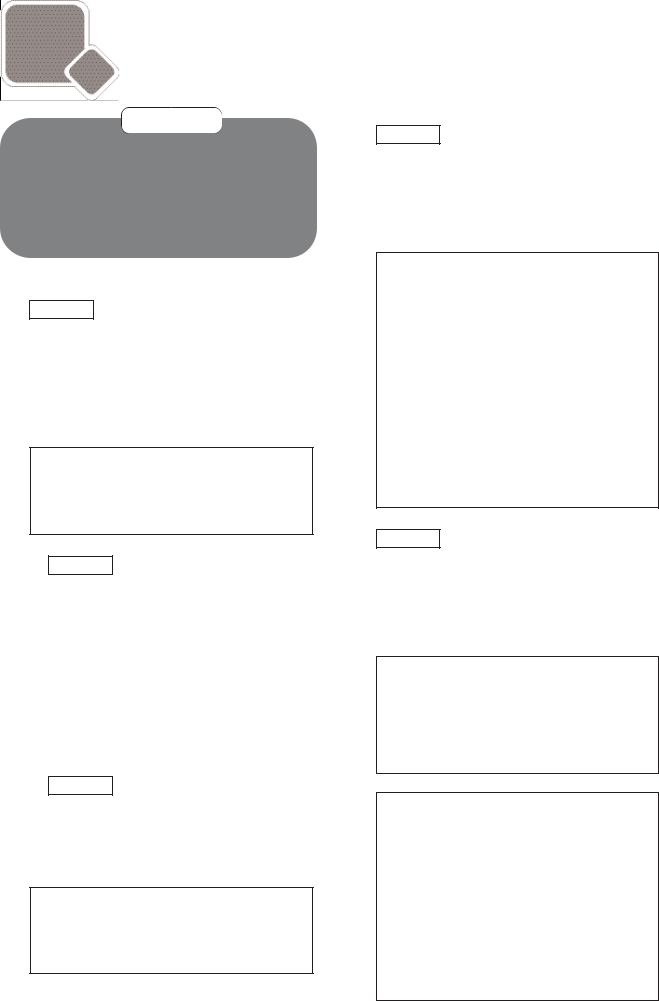
5 a Reading & Vocabulary
Objectives
Vocabulary: types of art; related to art Reading: reading for confirmation; reading for specific information; reading for gist Listening: listening for confirmation Speaking: role playing an interview
Writing: a paragraph expressing an opinion
3Focus Understanding new vocabulary
ñRefer Ss to the words in bold in the text.
ñRemind Ss to use the content of the text to understand the meaning of the bold words.
ñAllow Ss time to complete the task.
ñElicit answers and check.
Reading
1Focus Predicting the content of a text/
Reading and listening for confirmation
ñRefer Ss to the title, introduction, subheadings and pictures. Elicit what they think the text is about and write their answers on the board.
ñSs listen to and read the text to check their answers.
Suggested Answer Key
I expect to read about three kinds of art which are unusual and which differ from the normally accepted idea of art.
Suggested Answer Key
miniature: very small copy of an object
the eye of a needle: the hole in a needle through which you put thread
tiny: extremely small
significant: important, meaningful carving: sculpting
hosted: presented
impress: command admiration
turn up: make oneself present somewhere remain anonymous: continue to be unknown vandalism: act of deliberately damaging other people’s property
remove: take away
4 Focus Forming collocations
2 a) Focus Reading for specific information
(multiple matching)
ñRemind Ss to read the questions and underline the key words.
ñHave Ss complete the task.
ñRead the answers and check.
Answer Key |
|
|
|
|
|
|
|
||
1 |
A |
3 |
B |
5 |
B |
7 |
B |
9 |
B |
2 |
A |
4 |
B |
6 |
A |
8 |
C |
10 |
C |
|
|
|
|
|
|
|
|
|
|
ñHave Ss form collocations and then compare answers with a partner.
ñHave Ss make sentences with the completed phrases about the text.
ñElicit answers and check.
Answer Key |
|
|
|
1 |
miniature |
6 |
stay perfectly |
2 |
anonymous |
7 |
artistic |
3 |
take |
8 |
add |
4 |
learning |
9 |
private |
5 |
animal |
10 |
grains |
b) Focus Reading for gist
ñHave Ss reread the text for an overall understanding of each text and think of new headings for each text.
ñElicit answers and discuss.
Suggested Answer Key
A Small is Beautiful
B An Artistic Animal
C In the Eye of the Beholder
Suggested Answer Key
2Bansky, the British street artist, prefers to remain anonymous.
3When you take a look at this text, you will be really surprised by some of the artists described.
4Willard Wigan’s art was inspired by the learning difficulties he had at school.
5 Animal behaviourist Desmond Morris held an exhibition of ‘chimpanzee art’ in 1957.
87
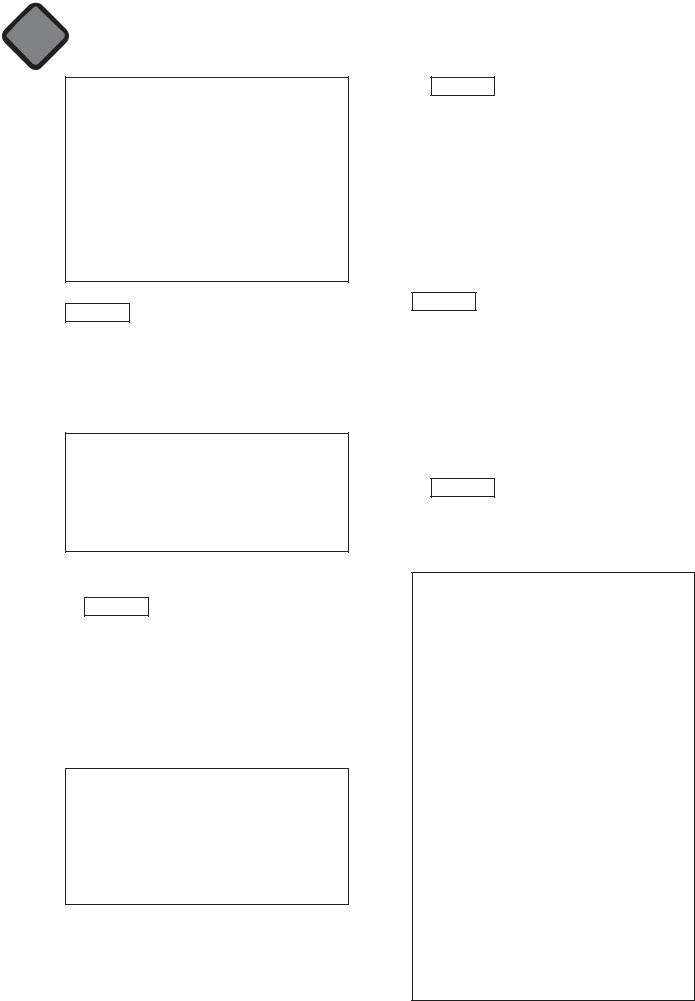
5a Reading & Vocabulary
6Wigan’s hands have to stay perfectly still so that he can create his miniature sculptures.
7Artistic creativity is not only limited to humans ― animals may have it too.
8Some people believe that graffiti on the walls of their property adds value to it.
9City councils in England cannot remove graffiti when it is on private property.
10Willard Wigan uses grains of rice and other unusual materials for his creations.
5Focus Finding opposites
ñHave Ss find opposites in the text for the words in the list.
ñSs compare answers with a partner.
ñCheck Ss’ answers and allow Ss time to write down any new vocabulary in their notebooks.
Answer Key
Ahuge ≠ tiny, unimportant ≠ significant, impatiently ≠ patiently
B excluded ≠ included, inability ≠ ability
Cbeautiful ≠ ugly, responsible ≠ irresponsible, public ≠ private, worthless ≠ valuable
Vocabulary
6 a) Focus Expanding vocabulary/
Understanding a spidergram
ñRefer Ss to the spidergram and have them copy it down in their notebooks.
ñElicit answers to the questions in the rubric and have Ss add any additional words to the spidergram.
(Ss’ own answers)
Suggested Answer Key
wood carving, etching and engraving, origami
I like photography because I enjoy keeping a record of people and places.
I don’t like pottery because it’s very messy and you get your hands dirty.
b)Focus Practising vocabulary
ñHave Ss complete the table and compare answers with a partner.
ñRead through the table and check Ss understand the vocabulary.
Answer Key |
|
|
2 |
sculptor/sculptress |
5 actor/actress, |
3 |
photographer |
director |
4 |
potter |
|
|
|
|
7Focus Practising vocabulary
ñHave Ss complete the task.
ñInvite Ss to read out their answers and check.
Answer Key |
|
|
|
|
1 |
sketch |
3 |
painting |
5 portrayed |
2 |
colour in |
4 |
designed |
|
|
|
|
|
|
Speaking
8 a) Focus Consolidating the content of a
text
Elicit from Ss things they remember from the texts and discuss.
Suggested Answer Key
A ñ Willard Wigan creates miniature sculptures.
ñHe uses strange materials like sugar crystals and grains of rice.
ñWhen he paints the sculptures he has to slow his breathing and paint between heartbeats to keep his hands steady.
Bñ Congo was a chimpanzee painter and he did nearly four hundred paintings.
ñHe was a guest on the British television show Zootime.
ñThe famous artist Pablo Picasso owned one of his paintings.
Cñ Bansky is world famous for his graffiti which he paints on walls and buildings in cities around the world.
ñHe won an art award, but he was too modest to accept it and preferred to keep himself anonymous.
ñA lot of people disapprove of his work because they think it is vandalism.
88
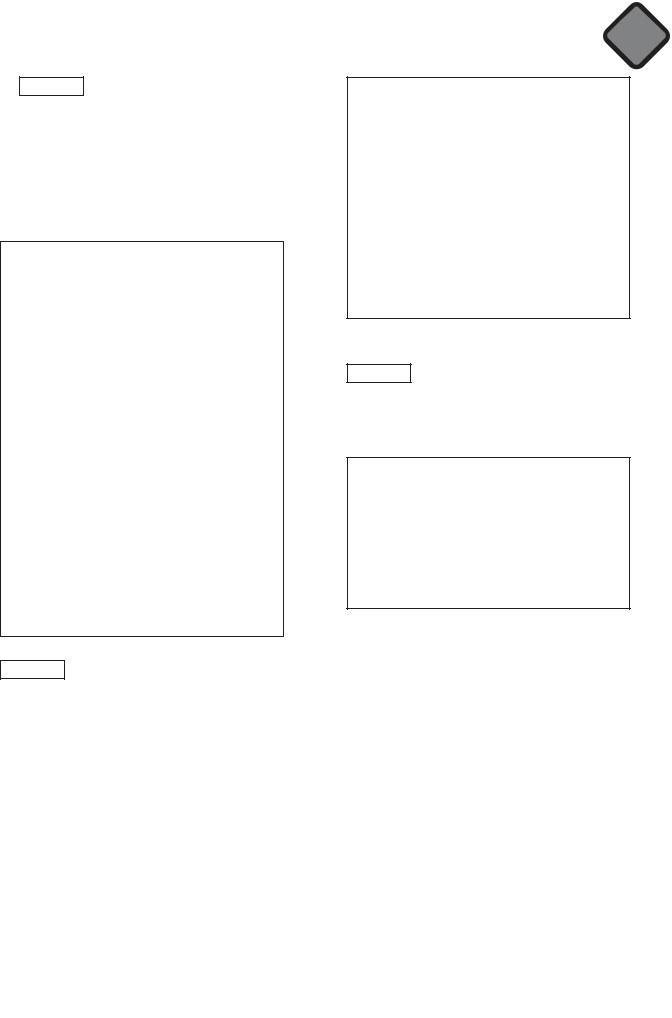
b)Focus Role playing an interview
ñRead the rubric and the example with Ss and check Ss understand the task.
ñDirect Ss to use vocabulary and expressions they have learned from the text.
ñIn pairs, Ss role play an interview with Willard Wigan and exchange roles.
ñMonitor the activity and assist as necessary.
Suggested Answer Key
Interviewer: Thank you for taking time out of your busy schedule to meet with me today and answer some questions.
Mr Wigan: I am honoured to be here. Interviewer: How do you get ideas for your sculptures?
Mr Wigan: I read a lot and get inspiration from history.
Interviewer: How long does it take you to create a sculpture?
Mr Wigan: They usually take me a couple of months to complete.
Interviewer: What are some of the sculptures that you have done?
Mr Wigan: I have made sculptures of the FIFA World Cup trophy, Muhammad Ali, and also Santa Claus.
Interviewer: That is quite impressive. Well, that is all the time we have today, but thank you again for talking with me.
Mr Wigan: You are welcome.
9Focus Discussing the topic of a text
ñIn pairs, Ss discuss and express their opinions about the art in the texts.
ñInvite Ss to tell the class what they think and have a discussion about the topic.
Reading & Vocabulary 5a
Suggested Answer Key
We believe that art is producing something that expresses emotion. So we believe three examples can be considered art. example A, Micro-Sculptures, Mr
creates sculptures to express that just because something is small, it doesn’t mean that not important. In example B, Chimpanzee Congo painted pictures to show his ability be creative. In example C, Urban Graffiti, Banksy is a painter as well. The difference is that instead of using a canvas, he portrays his feelings on buildings
Writing
10Focus Expressing an opinion
ñDirect Ss to complete the task.
ñSs read their sentences to a partner and
ñMonitor the activity and check Ss’ sentences
Suggested Answer Key
Life without art would feel incomplete. experiences can’t always be expressed through words. Art succeeds where words fail, without it, the world would be a quiet place. Art connected to culture and society. It people the chance to express themselves different ways.
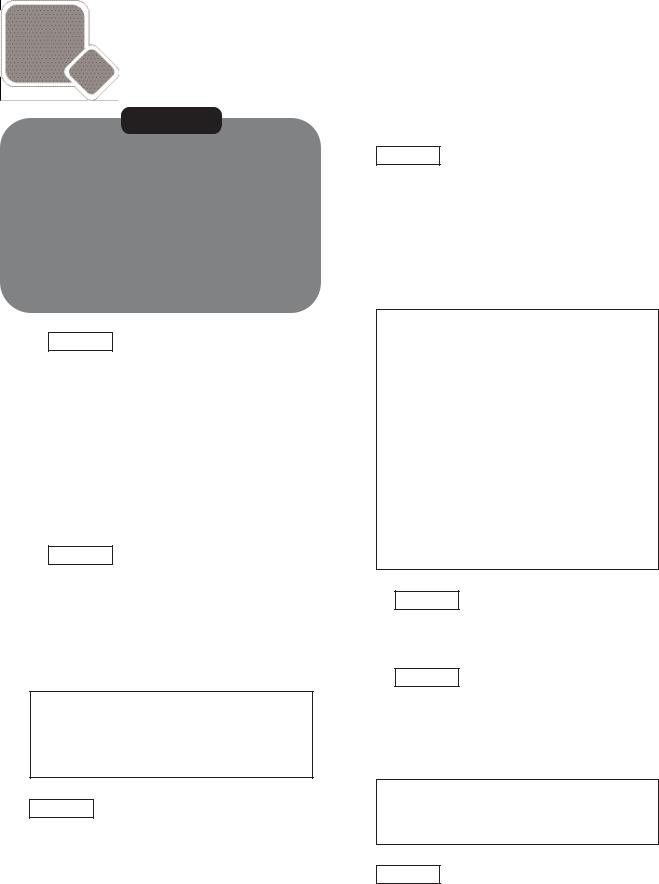
5 b Listening & Speaking
Objectives
Vocabulary: related to music; types of music Reading: reading for confirmation; reading for specific information
Listening: listening to identify types of music; listening for confirmation; listening for gist; listening for intonation (emphatic stress)
Speaking: discussing likes/dislikes; role playing; asking about/stating preferences; role playing a dialogue; practising intonation (empathic stress)
1 a) Focus Listening to identify types of music/Understanding vocabulary
ñPlay the recording with pauses after each extract to elicit the type of music.
ñDiscuss what the remaining types of music in the rubric are.
Answer Key |
|
|
|
1 |
jazz |
3 |
classical |
2 |
reggae |
4 |
rock |
|
|
|
|
b)Focus Discussing likes/dislikes in music
ñRead through the list of expressions and check for understanding.
ñIn pairs, have Ss discuss their likes/dislikes in music.
ñMonitor the activity and check for correct use of vocabulary and expressions.
Suggested Answer Key
A:I love classical music. I find it relaxing!
B:I’m not crazy about it. I prefer hip-hop music. It makes me want to dance.
2Focus Practising vocabulary
ñHave Ss complete the task and compare answers with a partner.
ñElicit answers and check.
Answer Key |
|
|
|
1 |
Listen, hear |
4 |
line, verse |
2 |
tune, melody |
5 |
training, practice |
3 |
humming, singing |
6 |
Turn down, turn off |
|
|
|
|
Everyday English
3Focus Role playing/Asking about/Stating
preferences
ñRead the language box and check Ss understand the phrases.
ñIn pairs, Ss role play and discuss preferences, using the phrases from the language box.
ñMonitor the activity and check for the correct use of vocabulary.
Suggested Answer Key
A:What do you think of the latest James Bond film, ‘Quantum of Solace’, with Daniel Craig?
B:It’s great. It’s totally my kind of film.
A:What’s your favourite TV programme?
B:The science fiction series ‘Dr Who’. What do you think of it?
A:To be honest, I’m not too keen on it. I prefer comedies.
A:Doesn’t this recipe for spicy Mexican chicken pizza sound great?
B:Wow, yes it does!
4 a) Focus Understanding phrases
Play the recording with pauses for Ss to repeat the phrases.
b) Focus Predicting the topic of a dialogue/
Listening and reading for confirmation
ñElicit what Ss think the dialogue is about.
ñHave Ss read and listen to the dialogue to check.
Suggested Answer Key
Two people are trying to agree on what type of music concert to go to.
5Focus Reading for specific information
ñRead the incomplete sentences in the rubric aloud to prepare Ss for what information to pay attention to.
ñHave Ss reread the dialogue and complete the sentences.
ñRead the sentences and check.
90
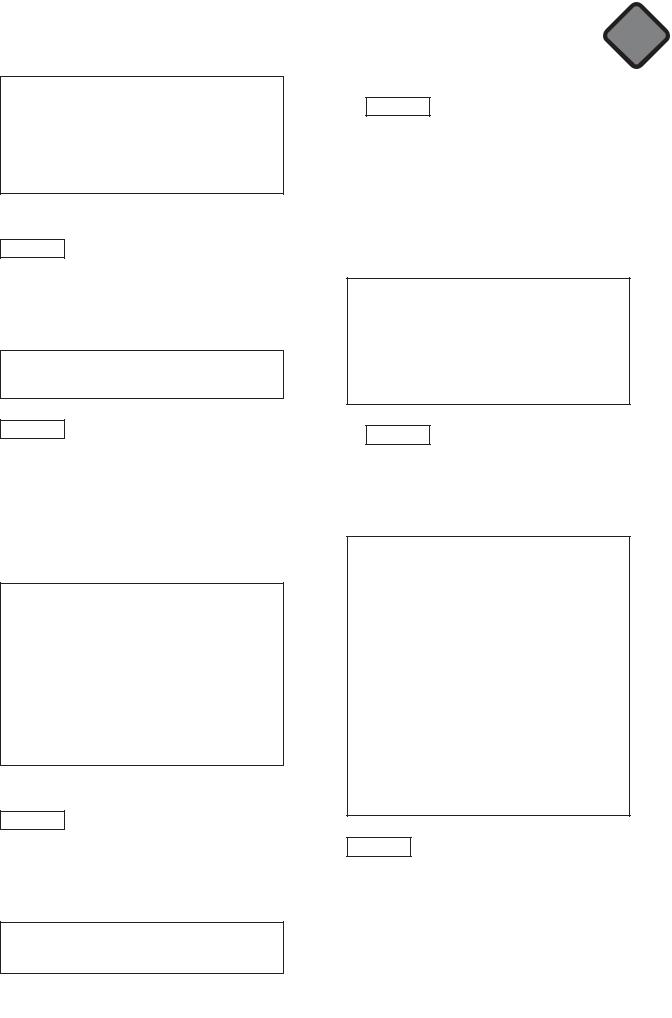
Answer Key
1 see the Foo Fighters
2 Andy to go with him
3 music you can dance to
4 a Kanye West concert next month
5 to go with him
Say it right
6Focus Using appropriate responses/
Listening for confirmation
ñHave Ss complete the task.
ñSs then listen to the recording and check their answers.
Answer Key
1 a |
2 a |
3 b |
7Focus Role playing a dialogue
ñRead the rubric aloud and check Ss understand the task.
ñDirect Ss to use expressions and vocabulary they have learned from the unit.
ñIn pairs, Ss act out the dialogue and record themselves.
ñMonitor the activity and assist as necessary.
Suggested Answer Key
A:Would you like to come with me and see Britney Spears this weekend?
B:Yes, that sounds like a great idea! I really like pop music.
A:Why don’t we go to the music festival this Sunday? Lil Wayne’s performing.
B:I don’t really like rap, to tell you the truth, but thanks for asking.
Listening
8Focus Listening for gist (multiple matching)
ñPlay the recording and have Ss complete the task.
ñListen to the recording again and check Ss’ answers.
Answer Key
1 C |
2 B |
3 D |
4 E |
5 A |
Listening & Speaking 5b
Intonation
9 a) Focus Listening for/Identifying intonation (emphatic stress)
ñRead the study skills box and check understand it.
ñPlay the recording with pauses after sentence and have Ss repeat it stressing correct syllable.
ñDiscuss the differences in meaning sentences.
Answer Key
1a I’m giving my opinion on the concert b The concert was more boring than
expected.
2a It’s best to keep your voice down. b It’s the rule not to talk loudly.
b)Focus Practising intonation
ñHave Ss listen to the recording and the syllables being stressed.
ñElicit answers and the differences meaning in each set of sentences.
Answer Key
1a The meal was extremely expensive. (the focus is that the meal cost a lot)
bThe meal was extremely expensive. (the focus is that the meal cost than was expected)
2a William gave me this lovely scarf. (the focus is that William gave the
bWilliam gave me this lovely scarf. (the focus is on how nice the scarf is)
3a Katy can’t join us for a meal on Saturday (the focus is on Katy’s inability)
bKaty can’t join us for a meal on Saturday (the focus is on the specific day)
10Focus Consolidating vocabulary
ñHave Ss think of ten new phrases they learnt and write sentences with them.
ñIn pairs, Ss read each other their sentences
ñMonitor the activity and check for correct of phrases.
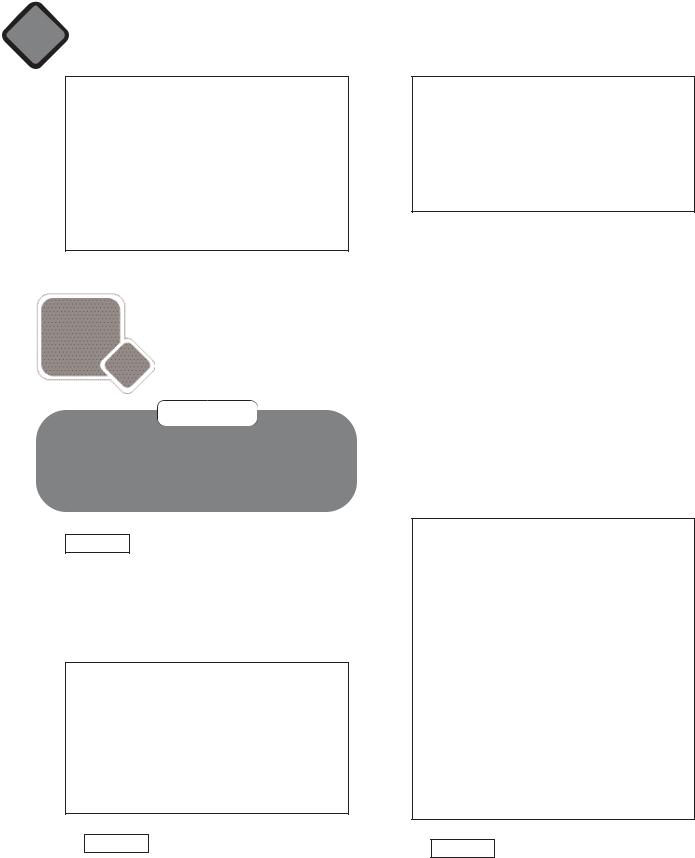
5b Listening & Speaking
Suggested Answer Key
1 I’m not to keen on classical music.
2What do you think of the band ‘Green Day’?
3 I’d love to go; count me in!
4I listen to jazz music almost every night; I’m crazy about it.
5I was wondering if you are interested in seeing an opera with me?
6 Actually, it’s not really my kind of thing.
7I’m not really into heavy metal. I find it too loud.
8 What sort of bands do you listen to?
9 I have piano practise twice a week.
10To tell you the truth, I’m not crazy about country music.
5 c Grammar in Use
Objectives
Grammar: comparative and superlative forms; gradable/non-gradable adjectives
Speaking: comparing people
Writing: a quiz, using comparatives and superlatives
1Focus Introducing the topic of the unit/
Completing a quiz
ñRefer Ss to the quiz and elicit what they know about classical music.
ñHave Ss complete the quiz and compare their answers with a partner.
Suggested Answer Key
I know that classical music is commonly associated with the 18th and 19th centuries when a lot of famous composers were writing pieces. I imagine everyone has heard of Beethoven, Mozart and Tchaikovsky. During that period, many musicians were composers for the royal court.
2 a) Focus Understanding/Identifying the
comparative and superlative
ñHave Ss read the quiz again and find all the comparatives and superlatives to complete the table in the rubric.
ñAsk various Ss to share their answers to check with the class.
Answer Key
the most talented, the most operas, the longest, later than, most famous, the biggest, the youngest
Adjective/ |
Comparative |
Superlative |
Adverb |
|
|
|
|
|
young |
younger |
youngest |
late |
later |
latest |
big |
bigger |
biggest |
talented |
more talented |
most talented |
famous |
more famous |
most famous |
long |
longer |
longest |
many/much |
more |
most |
good/well |
better |
best |
little |
less |
least |
carefully |
more carefully |
most carefully |
|
|
|
b) Focus Forming comparatives and superlatives (irregular forms)
ñRefer Ss to the Grammar Reference section and review it with the class. Emphasise that the comparative is used to compare two persons or things while the superlative is used to compare more than two persons or things.
ñWrite the headings adjective and adverb on the board. Beneath the headings write subheadings: comparative and superlative.
ñElicit from Ss how the comparative and the superlative are formed in each case and write the answers under the correct heading.
92
